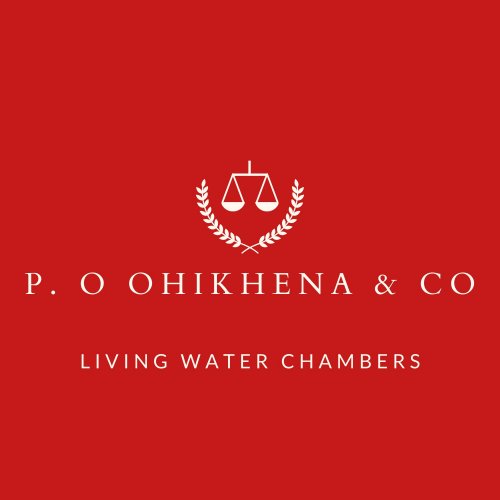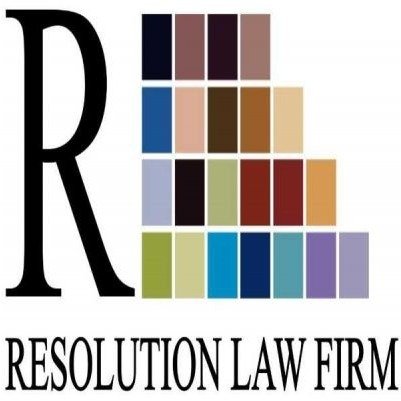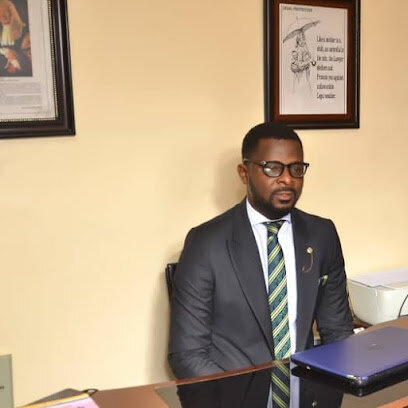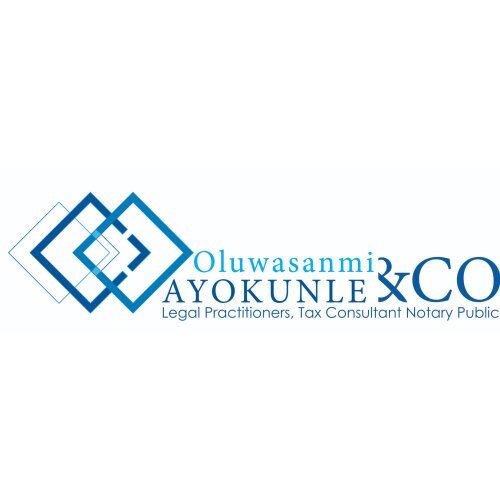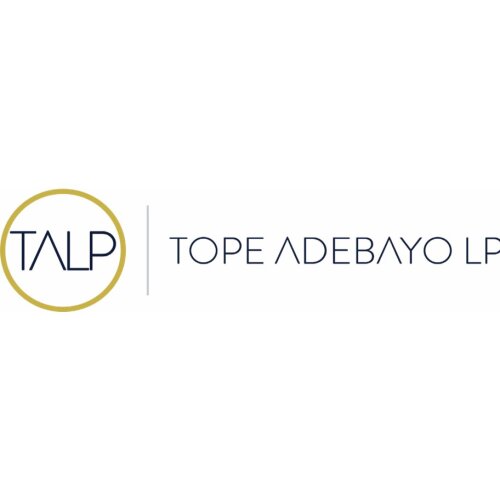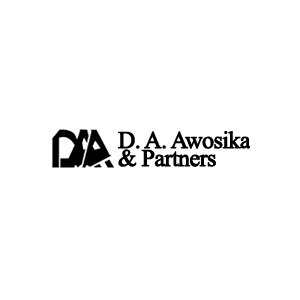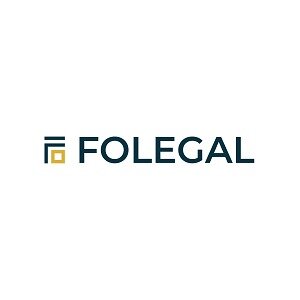Best Nonprofit & Charitable Organizations Lawyers in Ikeja
Share your needs with us, get contacted by law firms.
Free. Takes 2 min.
List of the best lawyers in Ikeja, Nigeria
About Nonprofit & Charitable Organizations Law in Ikeja, Nigeria
Nonprofit and charitable organizations play a pivotal role in Ikeja, Nigeria, by addressing various social, economic, and cultural issues. These organizations, often referred to as NGOs (non-governmental organizations), operate under specific legal frameworks to ensure they conduct their activities ethically and lawfully. Nonprofit organizations are typically established to pursue missions related to education, health, relief of poverty, and more, providing invaluable services without the intention of making a profit. Understanding the legal landscape governing these entities is crucial for their successful and compliant operation.
Why You May Need a Lawyer
Legal assistance is often necessary for nonprofit and charitable organizations to navigate the complexities of incorporation, compliance, and governance. Common scenarios where legal help might be required include:
- Setting up a nonprofit organization and drafting its constitution.
- Navigating tax exemption registration and ensuring ongoing compliance.
- Understanding employment laws as they apply to hiring staff or engaging volunteers.
- Managing legal risks associated with fundraising activities and accepting donations.
- Ensuring compliance with financial reporting and transparency requirements.
- Handling disputes within the organization or with external parties.
Local Laws Overview
Nonprofit organizations in Ikeja, like the rest of Nigeria, must comply with a variety of legal requirements set forth by national and local laws. Key legal considerations include:
- The Companies and Allied Matters Act (CAMA), which provides the foundation for registering and managing nonprofit entities.
- The Economic and Financial Crimes Commission (EFCC) regulations on fundraising and financial transactions to prevent fraud and misuse of funds.
- Tax laws related to obtaining and maintaining tax-exempt status with the Federal Inland Revenue Service (FIRS).
- Compliance with specific sector-based regulations if operating in fields like health or education.
Frequently Asked Questions
What is the first step in setting up a nonprofit organization in Ikeja?
The first step is to register your nonprofit under the Companies and Allied Matters Act (CAMA) with the Corporate Affairs Commission (CAC). This process involves drafting a constitution and applying for incorporation.
How can my nonprofit organization achieve tax-exempt status?
To achieve tax-exempt status, your organization must apply to the Federal Inland Revenue Service (FIRS). The application should include your organization's mission, financial statements, and evidence of your group's nonprofit nature and activities.
Are there any annual reporting requirements for NGOs in Ikeja?
Yes, NGOs are required to file annual returns with the Corporate Affairs Commission and report financial matters to maintain good standing and transparency in operations.
Can a nonprofit organization in Ikeja engage in profit-making activities?
Nonprofit organizations can engage in profit-making activities provided that the profits are used solely to further their nonprofit objectives and not distributed privately.
What legal protections exist for volunteers within our organization?
Volunteers are entitled to certain legal protections, including proper training and safety assurances, and are covered under general laws related to liability and negligence.
How can our organization legally fundraise in Ikeja?
Fundraising must comply with state and federal regulations, including proper documentation, transparency, and ensuring funds are used for their intended purposes only. Legal guidance is recommended to devise compliant strategies.
Is it necessary to have a board of directors for a nonprofit in Ikeja?
Yes, a board of directors is vital for governance. They oversee the mission's execution and ensure compliance with relevant laws and regulations.
What should we consider when hiring staff for our nonprofit?
Employment laws regarding contracts, wages, benefits, and workplace safety apply. It's crucial to conform to labor laws when hiring to avoid legal issues.
Can nonprofits in Ikeja receive foreign funding?
Yes, but organizations must comply with all legal requirements regarding foreign contributions, including reporting and regulatory submissions, especially to prevent money laundering.
What happens if our nonprofit fails to comply with legal requirements?
Noncompliance can result in penalties, loss of tax-exempt status, legal challenges, and potentially the dissolution of the organization.
Additional Resources
Here are some resources and organizations that can assist with legal advice for nonprofits:
- Corporate Affairs Commission (CAC)
- Federal Inland Revenue Service (FIRS)
- Nigerian Network of Non-Governmental Organizations (NNNGO)
- Economic and Financial Crimes Commission (EFCC)
- Local legal aid clinics and pro bono services
Next Steps
If you need legal assistance in the field of nonprofit and charitable organizations, consider the following steps:
- Research and prepare your organizational objectives and legal requirements.
- Consult with a legal professional specializing in nonprofit law to guide you through legal complexities.
- Engage with industry bodies and networks for support and resources available to NGOs.
- Maintain ongoing compliance with regulatory bodies and sector-specific laws.
- Regularly review and update your governance practices to reflect new legal changes or internal needs.
Seeking expert legal advice early can ensure your organization's legal foundation is strong, supporting its mission effectively and sustainably.
Lawzana helps you find the best lawyers and law firms in Ikeja through a curated and pre-screened list of qualified legal professionals. Our platform offers rankings and detailed profiles of attorneys and law firms, allowing you to compare based on practice areas, including Nonprofit & Charitable Organizations, experience, and client feedback.
Each profile includes a description of the firm's areas of practice, client reviews, team members and partners, year of establishment, spoken languages, office locations, contact information, social media presence, and any published articles or resources. Most firms on our platform speak English and are experienced in both local and international legal matters.
Get a quote from top-rated law firms in Ikeja, Nigeria — quickly, securely, and without unnecessary hassle.
Disclaimer:
The information provided on this page is for general informational purposes only and does not constitute legal advice. While we strive to ensure the accuracy and relevance of the content, legal information may change over time, and interpretations of the law can vary. You should always consult with a qualified legal professional for advice specific to your situation.
We disclaim all liability for actions taken or not taken based on the content of this page. If you believe any information is incorrect or outdated, please contact us, and we will review and update it where appropriate.




